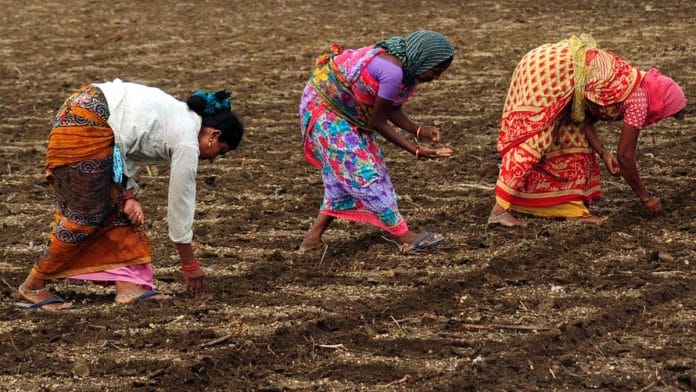New Delhi: Farming with only natural additives such as cow dung and neem leaves is a reality for 8,00,000 farmers in Andhra Pradesh. Spurred by a 2015 state government initiative that sought to phase out chemical and fertiliser-heavy agriculture, Andhra Pradesh is scripting a success story in natural farming. Documentary filmmaker Renuka George managed to capture its contours and bring it to global attention with her 55-minute film Indian Soil in Revolution.
“This is the first time I’m screening my film in India – where it is actually set,” said George while introducing her feature at a recent event in the India International Centre, New Delhi. Her 2023 film was produced by a French agency, and till now, she has only showcased it a few times in France and Europe.
George’s film was as much of a success as the natural farming initiative in Andhra Pradesh’s West Godavari, Krishna and East Godavari districts. It is centred around the figure of T Vijay Kumar, an IAS officer who heralded the natural farming movement in the state. And it explores the scenarios under which Kumar’s pioneering scheme took place.
Farmers across the country, particularly in the Deccan plateau – states such as Maharashtra, Karnataka and Andhra Pradesh – were buckling under the pressure of expensive and chemical-intensive farm inputs, low outputs, and consequent environment pollution.
Kumar’s strategy, as shown in the film, was to urge farmers to abandon chemical fertilisers and opt for desi (indigenous) cow dung or jeevamitram. He also suggested that they use a mixture of cow urine, neem leaves and water as pesticide. The natural farming technique Kumar proposed was started in the mid-1990s by Subhash Palekar. He was one of the guests invited by the government in Andhra Pradesh to speak to farmers and encourage them to adopt natural farming.
“The response to Palekar was tremendous – there were thousands of farmers from across the state sitting in silence, taking notes and asking questions to Palekar,” Kumar is heard saying in the film. “That’s when we knew that much convincing wasn’t required – the farmers themselves wanted to be a part of this revolution.”
No rosy journey
George’s film is a masterclass in natural farming. As it ended with a rousing round of applause, she revealed the special treat in store for viewers.
“I would love to take your questions on the film but I think there’s someone better than me to answer them,” said George, revealing that T Vijay Kumar himself would be joining online to speak to the audience.
What followed was an engaging Q&A session. Kumar answered questions about everything – from the availability of desi cow dung to the secret behind the government’s successful scheme.
“It honestly would not have been possible without the women farmers – they formed the self-help groups, they would make jeevamitram and natural pesticides, and push their husbands to use it,” explained Kumar, who is currently the chairman of the Rythu Sadhikari Samstha, an AP government corporation for farmers’ empowerment.
Women were extremely important to the scheme because they were the “health-keepers” of their families, said Kumar. They knew the difference between the food grown using conventional fertilisers and the one using natural ones. They chose the latter to prioritise their families’ health.
But it wasn’t all rosy and easygoing for Kumar’s team.
“We’re not giving financial incentives to the farmers – we are just offering them a safer, easier alternative and asking them to choose it,” he said. “But for many, the transition itself was not easy to make.”
The film showed how farmers in the West Godavari district, one of the initial beneficiaries of the Green Revolution in the 1960s and 1970s, were averse to giving up their artificial fertilisers. For many of them, this meant losing out on their harvest – a risk that didn’t seem worth taking. Kumar then recalled a promise he made to the farmers.
He assured them that, while the initial few months would see lower harvests as the soil adjusted to the natural fertiliser, they could reap their original yield in no time. “It might be called a revolution but it is the most natural process in the world – we’re returning the soil to its original form, and letting nature take its course,” said Kumar.
(Edited by Zoya Bhatti)






